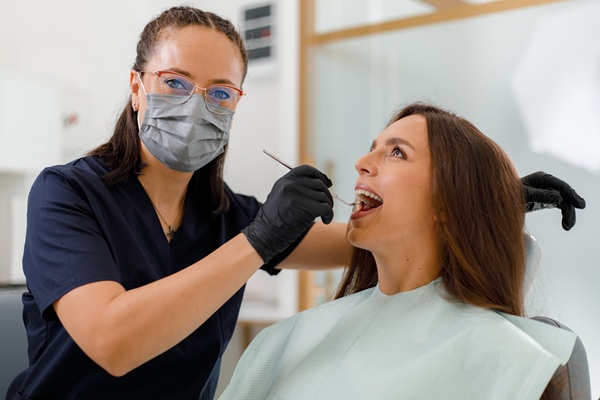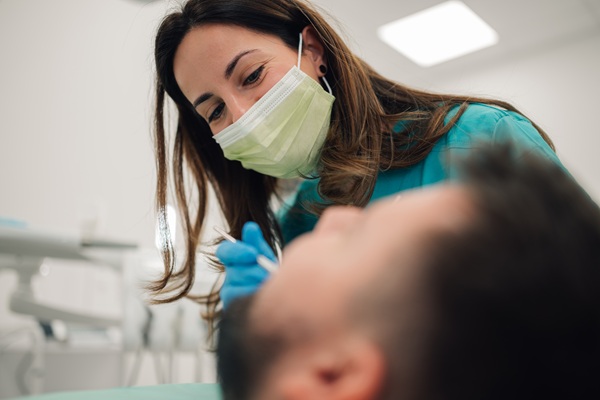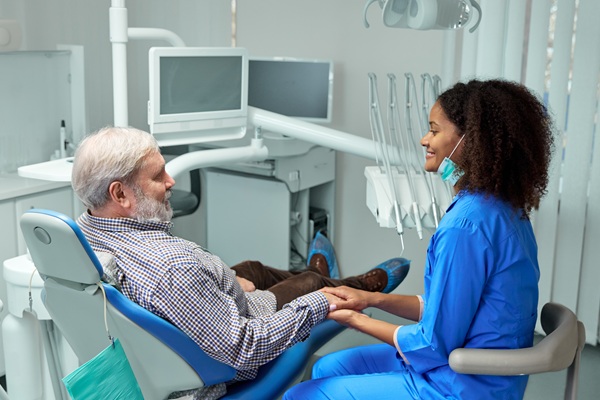Tips on How to Care for Your Smile After a Dental Cleaning

Routine dental cleanings help maintain the health of your teeth and gums by removing plaque and tartar buildup. However, practicing good oral hygiene at home is essential to prevent oral health issues between visits. Taking proper care of your teeth daily ensures a bright, healthy smile over time.
Tips to better care for teeth between dental cleanings
Brush properly twice a day
Brushing teeth at least twice daily helps keep them free of plaque and food particles. A soft-bristled toothbrush and fluoride toothpaste help clean teeth without causing damage to the enamel or gums. Each brushing session should last at least two minutes, covering all surfaces of the teeth, including the front, back, and chewing areas. Using gentle, circular motions helps remove plaque more effectively than brushing too hard.
Floss every day
Flossing is just as important as brushing because it removes food and plaque from areas a toothbrush cannot reach. Flossing once daily helps prevent cavities and reduces the risk of gum disease. Flossing technique is also important. Slide the floss gently between the teeth and curve it around each tooth instead of snapping it into place. If using traditional floss is difficult, floss picks or water flossers can be good alternatives.
Use mouthwash for extra protection
Mouthwash can help reach areas that brushing and flossing might miss. An antibacterial mouthwash reduces plaque buildup and helps prevent gum disease. A fluoride rinse strengthens enamel and protects against cavities. Rinsing for about 30 seconds after brushing and flossing can provide additional protection and keep the mouth feeling fresh.
Drink plenty of water
Drinking water throughout the day helps wash away food particles and bacteria that can cause plaque buildup. Water also keeps the mouth hydrated, reducing the risk of dry mouth, which can lead to tooth decay. Choosing water over sugary or acidic drinks helps protect enamel and maintain oral health between dental cleanings.
Eat a tooth-friendly diet
A balanced diet plays a key role in maintaining strong teeth and gums. Foods rich in calcium, such as dairy products and leafy greens, help strengthen enamel. Crunchy fruits and vegetables, like apples and carrots, help clean teeth naturally by removing plaque as they are chewed. Limiting sugary and starchy foods can reduce the risk of cavities and protect teeth from decay.
Avoid harmful habits
Certain habits can damage teeth over time. Chewing on ice, biting fingernails, or using teeth to open packages can cause chips and cracks. Smoking and using other tobacco products can increase the risk of gum disease and stains on teeth. Avoiding these habits can help maintain a healthy smile between dental cleanings.
Do not skip regular dental visits
Even with good oral hygiene, professional cleanings are necessary to remove plaque and tartar buildup that brushing and flossing cannot eliminate. Dentists can also detect early signs of cavities, gum disease, and other dental issues. Scheduling a dental cleaning every six months ensures teeth stay healthy and problems are caught early.
Keeping a healthy smile between dental cleanings
Good oral hygiene does not stop after a dental cleaning. Brushing, flossing, and using mouthwash regularly help maintain healthy teeth and gums. Making smart choices about diet and habits can also prevent dental problems and keep a smile bright until the next cleaning.
Request an appointment here: https://familydentistprescott.com or call Joseph A. Savoini D.M.D., P.C. at (928) 297-3040 for an appointment in our Prescott office.
Check out what others are saying about our dental services on Yelp: Dental Cleaning and Examinations in Prescott, AZ.
Recent Posts
A dental cleaning is the perfect opportunity to catch up with your dentist. Yes really, catch up. Your average dentist loves it when their patients have healthy teeth that need little more than a light scrub. This is why preventative measures like routine checkups are so important.Patients with healthy teeth can spend the bulk of…
A dental cleaning is a simple and non-invasive dental procedure in which plaque and tartar accumulation is scaled away and the teeth and gum line are thoroughly cleaned and polished. There are several notable benefits of this preventive dental procedure that patients should understand. The benefits of dental cleaning include the ability to brighten and clean…
A preventive dentist focuses on stopping problems before they start. By pairing routine checkups with good daily habits, patients protect enamel, gums, and long-term oral function. Seeing a preventive dentist helps catch early signs of decay or gum inflammation, guide at-home care, and plan simple treatments that preserve natural tooth structure. Preventive care also supports…
Many people do not know that regular dental checkups are the most important preventive dentistry procedures against oral cancer. The dentist’s objective is to prevent and diagnose any issue as early as possible, when treatment is easier. Preventive dentistry is all about keeping the oral cavity healthy for a long time. Oral cancer screening is…


